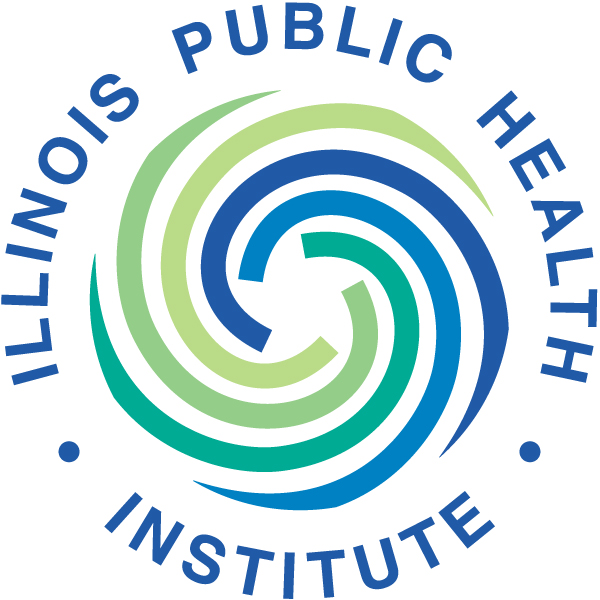Illinois Medical Respite Capacity Building Initiative
The Illinois Medical Respite Capacity Building Initiative (IMRCBI) is led by the Illinois Public Health Institute with funding from the Illinois Department of Human Services (IDHS) and support from the Illinois Office to Prevent and End Homelessness.
Learn more about the initiative below.

ABOUT THE INITIATIVE
On any given night in Illinois, an estimated 10,431 people are living in shelters and transitional housing programs, in parks and abandoned buildings, in cars and in barns. In addition to Illinois residents who are experiencing literal homelessness, tens of thousands of Illinois families live temporarily and unstably with family and friends. To address this, Governor JB Pritzker signed the Executive Order to Fight Homelessness in Illinois in September 2021, which created two new commissions within State Government and a new position to lead the work: Illinois Interagency Task Force on Homelessness, Community Advisory Council, and State Homelessness Chief, Christine Haley. Together, they are responsible for Home Illinois.
Home Illinois: Illinois’ Plan to Prevent and End Homelessness sets the foundational vision to ending homelessness in the state through both established and new innovative strategies. Under this plan, Illinois residents, community agencies and state government will work together to prevent entries into shelter. When literal homelessness does occur, the experience will be brief and one-time.
The Illinois Medical Respite Capacity Building Initiative is a direct result of the Home Illinois Plan. Medical respite was identified as a key activity within the plan because of its ability to interrupt cycles of homelessness, housing insecurity and health outcome disparities by connecting people experiencing homelessness with multiple resources at once, including housing, healthcare, and other social services.
In July, HB2831 codified the task force into law, continuing this important work and ensuring their mission is protected by state law. Gov. Pritzker’s FY24 budget affirms this commitment, including this continued and expanded funding for the IMRCBI.
FY 2023
The first year of this initiative ran from December 2022 through June 2023. During that time, eleven Illinois communities were awarded funding through the IMRCBI, in addition to one-to-one technical assistance provided by the National Healthcare for the Homeless Council (NHCHC), and the chance to participate in three learning collaborative meetings. With this support, awardees were able to convene community partners, conduct needs assessments, engage people with lived expertise of homelessness, and either develop a plan for new medical respite programs or expand existing medical respite programs. The IMRCBI also engaged key medical respite partners to provide public comments on the proposed medical respite benefit within the Department of Healthcare and Family Service’s 1115 Healthcare Transformation Waiver.
FY 2024
Continued and expanded funding from the state has allowed the IMRCBI to expand during this fiscal year. Our award program has grown to support 18 Illinois communities to build greater capacity for medical respite care across three tracks, including:
- Medical Respite Planning – Awardees in this track are expected to develop a plan to bring new medical respite services to their community.
- Medical Respite Pilot Implementation – Awardees in this track are expected to implement a pilot medical respite program by the end of the award period.
- Medical Respite Expansion – Awardees in this track are expected to implement a service expansion or innovation at their existing medical respite program.
Consistent with the first year of this initiative, awardees are receiving funding, technical assistance from NHCHC, and participation in five learning collaborative meetings.
In addition to the awards, the IMRCBI now includes several other projects that all contribute to system building for medical respite across the state, including the Statewide Medical Respite Collaborative (SMRC) and the Cook County Medical Respite Network (CCMRN). The IMRCBI will also continue to partner with the Department of Healthcare and Family Services as they pursue approval of the 1115 Healthcare Transformation Waiver to engage medical respite stakeholders on the implementation of the proposed medical respite benefit.
OUR AWARDEES
- Blessings Health System; Mary Frances Barthel
- Home Sweet Home Ministries; Matt Burgess
- Journeys: The Road Home; Todd Stull
- Madison County Health Department: Emily Won
- Phoenix Community Development Services; Christine Kahl
- Respond Now; Jakala Garba
- Swedish Hospital; Jonathan Lind
- Franciscan Outreach; Robret Simpson
- Heartland HOUSED; Josh Sabo
- Project NOW; Ron Lund
- UWHealth/Rockford; Angie Walker
- BEDsPlus; Stephanie Evans
- Connections for the Homeless; Micheal Mallory
- Joliet Township; Nicole Garrett
- MacNeal Hospital – Soujourner House; Chuck Bareis
- PADS Lake County; Claress Pettengill
- The Boulevard; Richard Ducatenzeiler
Read our full Press Release: 4.3.2023 Medical Respite Press Release.pdf
Cook County Medical Respite Network
This regional group includes developing and established medical respite providers, Continuums of Care, hospitals and healthcare providers, local health departments and other key partners in Chicago and Cook County. They meet regularly to share knowledge and best practices, coordinate efforts across the county, problem solve for region-specific challenges, and network and connect with other stakeholders. This group will produce a network guide that provides an overview of all available medical respite programs in the region, and they’ll create a referral tool outlining the criteria and process for entry and exit from all Cook County medical respite programs.
Statewide Medical Respite Collaborative
This statewide group engages key partners across multiple sectors, including medical respite, healthcare, housing support and homeless services, local governments, the private sector, and more, to encourage greater collaboration, interest, and investment in the medical respite model across the state. This collaborative will inform the creation of a gap analysis that will provide a high-level overview of critical gaps in medical respite service provision and highlight barriers to accessing medical respite services for clients. This gap analysis will also propose opportunities for greater expansion of the medical respite model across the state and further system building across the state.
Learn more
Listen to the following recordings to learn more about the Illinois Medical Respite Capacity Building Inititative
Informational Webinar: Illinois Medical Respite Capacity Building Initiative RFA (youtube.com)
1115 Waiver Informational Webinar
